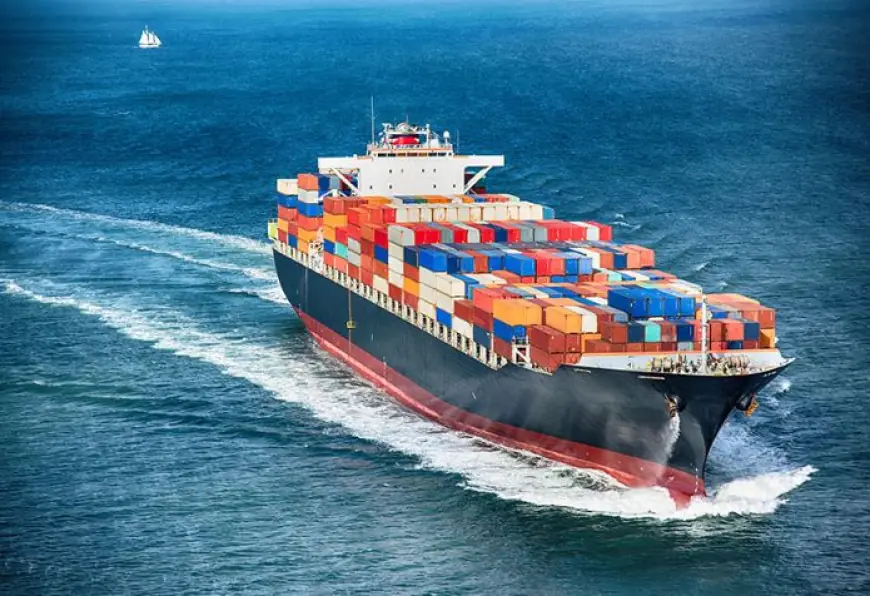How Can Fleet Logistics Support Improve Operations
Fleet Logistics Support plays a crucial role in enhancing operational capabilities, reducing downtime, and improving mission success rates across industries.

In an increasingly fast-paced world where every second matters, Fleet Logistics Support has emerged as a backbone for seamless operations across sectors—from defense and shipping to e-commerce and public transport. But how can Fleet Logistics Support improve operations? The answer lies in a mix of strategy, technology, and real-time adaptability.
What Is Fleet Logistics Support?
Fleet Logistics Support refers to the systems, tools, and processes used to maintain, resupply, and optimize the functioning of a group of vehicles or vessels. This includes everything from fuel management and inventory tracking to crew rotation, spare parts distribution, and maintenance scheduling.
Whether it's a navy fleet sailing across oceans or a logistics company managing hundreds of delivery trucks, the principles of effective logistics support remain the same—minimize downtime, maximize readiness, and ensure mission continuity.
1. Enhancing Operational Readiness
At the heart of Fleet Logistics Support is the goal of operational readiness—ensuring that every asset in the fleet is fully prepared to perform its function at any given moment.
-
Predictive maintenance, powered by data analytics and IoT sensors, helps detect faults before they lead to breakdowns.
-
Regular inventory tracking ensures that essential parts and supplies are available when and where they're needed.
-
Scheduled crew rotations help avoid fatigue and boost personnel efficiency.
This proactive approach reduces delays and costs while significantly increasing the uptime of fleet assets.
2. Cost Optimization Through Smart Resource Allocation
Fleet operations can quickly become financially draining if resources are not managed efficiently. Fleet Logistics Support introduces smart resource allocation techniques:
-
Fuel efficiency monitoring to track and reduce unnecessary fuel consumption.
-
Consolidating shipments or optimizing delivery routes using AI-based route planners.
-
Implementing just-in-time supply chains, which cut down on storage costs and reduce waste.
For commercial logistics, these methods contribute directly to profit margins. In military or emergency response scenarios, it could mean the difference between mission success and failure.
3. Improved Communication and Coordination
A key challenge in managing fleets—especially in large-scale operations—is maintaining clear and consistent communication across various nodes. Fleet Logistics Support systems bridge that gap.
-
Centralized command platforms ensure real-time updates across departments and vehicles.
-
GPS and RFID tracking improve visibility of fleet location, movement, and load status.
-
Integrated communication systems reduce response times in case of rerouting or emergency intervention.
Whether you're running a cargo fleet across continents or a city-wide public transport network, streamlined communication boosts both speed and safety.
4. Leveraging Data for Better Decisions
Fleet Logistics Support isn’t just about managing the now—it’s about planning for the future. Advanced logistics platforms allow organizations to leverage data for deep insights:
-
Identify recurring breakdown trends and invest in durable alternatives.
-
Analyze route delays and optimize delivery patterns.
-
Forecast seasonal spikes and align supply chains accordingly.
Incorporating AI and machine learning into logistics support makes fleet operations smarter over time, leading to continuous improvement and scalability.
5. Environmental and Regulatory Compliance
Modern fleets must also navigate increasingly strict environmental regulations and compliance standards. Logistics support systems help meet these goals through:
-
Emission monitoring tools that ensure environmental compliance.
-
Digital recordkeeping for inspections, audits, and legal documentation.
-
Training modules integrated into fleet systems for crew awareness and regulation updates.
Fleet Logistics Support thus ensures sustainability is not sacrificed in the name of performance.
6. Emergency Response and Crisis Readiness
During natural disasters, military deployments, or global supply chain disruptions, Fleet Logistics Support becomes mission-critical.
-
Rapid mobilization of supplies and personnel.
-
Mobile support units for repair, medical, or food logistics.
-
Contingency route planning in case of roadblocks or port closures.
The ability to adapt and respond quickly under pressure is one of the most crucial benefits of a robust logistics support system.
Conclusion: The Road Ahead
So, how can Fleet Logistics Support improve operations? Through a potent mix of data intelligence, real-time communication, predictive maintenance, and sustainable planning, it transforms complex logistical networks into well-oiled machines. As industries continue to evolve and customer expectations rise, investing in smarter, more resilient logistics systems is not just strategic it’s essential.
For organizations looking to stay ahead in a competitive and unpredictable landscape, Fleet Logistics Support offers the tools to not just survive, but thrive.
What's Your Reaction?
 Like
0
Like
0
 Dislike
0
Dislike
0
 Love
0
Love
0
 Funny
0
Funny
0
 Angry
0
Angry
0
 Sad
0
Sad
0
 Wow
0
Wow
0
















































